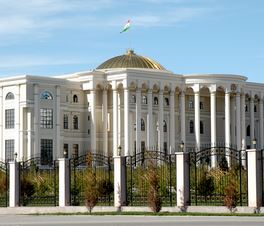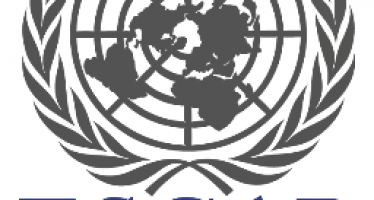Achieving Growth and Development in Tajikistan

Dushanbe: Presidential Palace
A new Country Partnership Strategy (CPS) for Tajikistan outlines a World Bank Group program of support for the country over the period 2015-2018. The joint World Bank-IFC strategy sets out priority goals in the framework of cooperation between the World Bank Group and the Government of Tajikistan, which will further support efforts to reduce poverty and promote shared prosperity in the country.
The new CPS aims to increase the well-being of the people of Tajikistan by expanding economic opportunities for the private sector and for poor and vulnerable groups in society. The CPS prioritizes three main areas: 1) promote private sector led growth by improving the investment climate and strengthening competitiveness in key sectors to attract investment and create jobs; 2) promote social inclusion by increasing access to improved social and public services; and 3) enhance regional connectivity to increase the country’s access to regional markets and to global information and knowledge.
Mainstreaming climate change, governance and narrowing the gender gap will remain important measures across all sectors of the CPS.
In fiscal years 2015-2018, the World Bank will provide its support to Tajikistan through the existing portfolio of projects along with new investments in education, water and sanitation, irrigation, transport, and public financial management. Through analytical work and development policy lending, the Bank will also support structural reforms in the energy and financial sectors to help stimulate stronger growth.
“The joint World Bank-IFC strategy sets out priority goals in the framework of cooperation between the World Bank Group and the Government of Tajikistan, which will further support efforts to reduce poverty and promote shared prosperity in the country.”
Building upon its existing advisory and investment services portfolio, IFC will continue to prioritize activities that contribute to increased access to finance for small and medium-sized enterprises, particularly in rural areas, promote investment climate improvements, reduce costs of doing business, and support development of agribusiness, hydropower and mining. IFC will also seek investment opportunities in other growth-enhancing sectors and develop related advisory services.
Tajikistan joined the World Bank in 1993 and the International Development Association (IDA) in 1994. Since 1996, the World Bank has provided US$ 955 million in IDA credits, grants, and trust funds to improve people’s lives in Tajikistan.
IFC, a member of the World Bank Group, is the largest global development institution focused exclusively on the private sector in developing countries. Since 1997, IFC has invested US$ 81 million to support 32 private sector projects in the financial, hydropower, retail, tourism, and manufacturing sectors. IFC’s program includes annual advisory services of approximately US$3 million in: improving the investment climate, promoting corporate governance, reforming tax administration, supporting the development of credit bureaus, supporting the microfinance transformation processes and improving the business environment for agribusiness.
The World Bank Group is committed to further support Tajikistan as it strives to improve the lives of people and meet the aspirations of its young and growing population.
Copyright © World Bank
You may have an interest in also reading…
Chow Tai Fook’s $2.8B H.K. IPO May Beat Prada
Chow Tai Fook Jewellery Group Ltd. aims to raise as much as HK$22 billion ($2.8 billion) in what may be Hong Kong’s
DEG: Germany Eyes Future Markets Beyond the BRICS
In the light of weak economic activity, growth forecasts for the major emerging nations in 2013 and 2014 are being
UN Expects Subdued Asia-Pacific Growth in 2013
Growth in Asia-Pacific remains subdued due to the impact of persistent weaknesses and uncertainties in the developed economies, the United


















































































